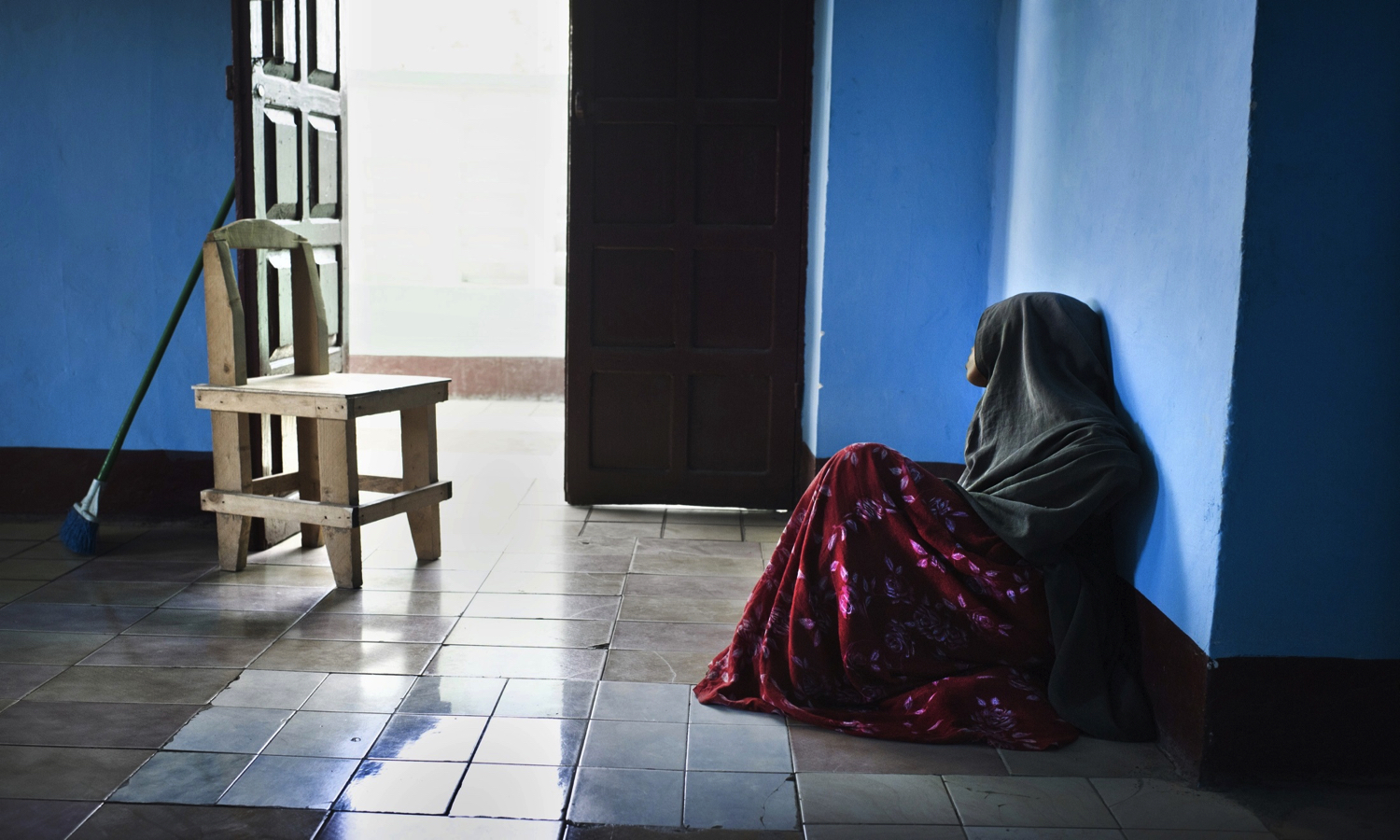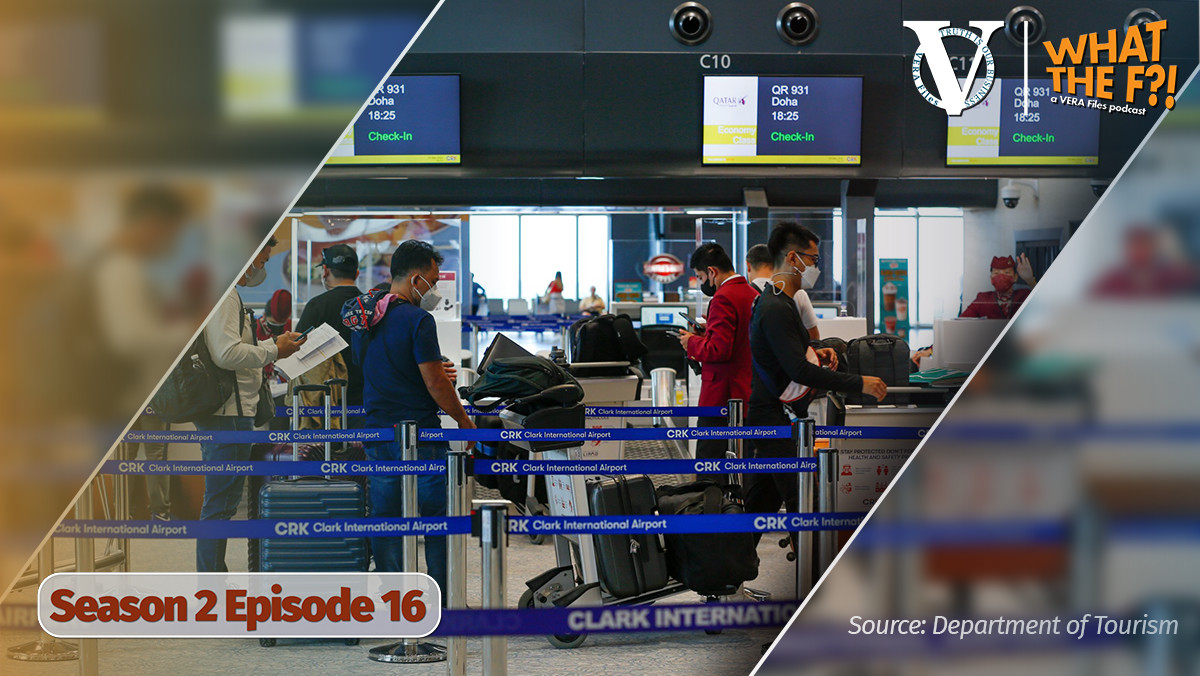BY KITT MOLINA and ALETA SANTOS
Hope for the Youth Foundation and VERA Files
THIS is a true story about a crime that, despite the existence of a law, has gone unpunished.
“Nora,” 22, is a victim of human trafficking, one of up to 100,000 Filipino women and children who are believed to be victimized every year.
A single parent, she comes from a poor family living in the outskirts of Metro Manila. Under R.A. 9208 or the Anti-Trafficking in Persons Act, however, Nora may not reveal for this story her true name or those whom she has accused of committing the crime.
It has been almost two years since she and two other Filipinas filed a case of illegal recruitment and human trafficking against the local agency that deployed them to South Korea where they were forced to work as “guest relation officers” or GROs and engage in acts of prostitution.
Their case gathered dust until one of the complainants filed an affidavit of desistance, which, as Nora expected, led to the dismissal of the case. They sued their local recruiter for money claims due to unpaid wages but this, too, was dismissed by the National Labor Relations Commission (NLRC).
“Nadi-dismiss po sa NLRC ’yung case dahil ’yung isang kasama bumaligtad, kaya po lumakas ang laban ng kabila. Narinig naming gumawa siya ng desistance kasi napapagod na raw po siya at nagpabayad na lang siya. Trinaydor niya pa rin kami. (Our case filed with National Labor Relations Commission (NLRC) was dismissed because one of us had a change of heart which helped the other side. We heard she filed an affidavit of desistance because she got tired and would rather be paid. She betrayed us).”
Both cases have been appealed by Nora who did not expect that her fight for justice would come to naught given the reported all-out campaign of the government against human traffickers. Moreover, the House of Representatives’ Committee on Overseas Filipino Workers has initiated the filing of the criminal case against the local recruiter. The committee, with the help of a lawyer from Malacañang, was instrumental in rescuing Nora and her two co-workers from the South Korean nightclub where they worked. The officials demanded from the local recruitment agency the return of the three Filipina workers to the Philippines.
The Philippine embassy in South Korea was not involved at all in the repatriation of the trafficked Filipinas. “Sa palagay ko, alam ng embassy dun pero pinagtatakpan (I think the embassy there knows but they’re covering it up),” says Nora.
Recruiters’ strategy
Ironically, it is now Nora who is on the defensive. She has been charged with perjury and falsification of public documents by her recruiter, which continues to send Filipina entertainers to South Korea despite a pending complaint against the agency before the Philippine Overseas Employment Agency (POEA).
Being used against Nora was the blank document signed by her mother who was told that this was a requirement for the quick deployment of her daughter to South Korea.
The day before her departure, Nora also signed a hand-written document stating that she owed her recruiter P30,000. The document stipulated her monthly salary would be $300 to be given on her seventh month at work with a three-month deduction as placement fee and reimbursement for other expenses.
“Ganyan talaga ang strategy ng recruiters. They file counter-charges at magtatagal ang kaso hanggang mag-settle na lang ang complainant. ’Yan ang problema sa ating judicial system. (That’s the usual strategy of recruiters. They file countercharges which prolong the case and force the complainant to go for a settlement. That’s the problem with our judicial system),” says Erwin Puhawan, a paralegal of the Kanlungan Center Foundation Inc., who helps Nora follow up her case.
Prosecutors abet the practice of settling even criminal cases, which is patently wrong, adds Puhawan, the only person who agreed to be identified in this story.
But the problem lies not just in the judicial system but also in the law itself. The Kanlungan paralegal says human-trafficking victims run the risk of violating the confidentiality clause of the anti-human trafficking law when they expose and identify illegal recruiters to warn others about the modus operandi. The law prohibits public disclosure of the name and personal circumstances of the trafficked person as well as of the accused.
But even without naming names and places, Nora’s experience in South Korea stands out for the boldness of her recruiter.
On the day that Nora and her companions arrived in Manila escorted by airport security, several personnel of the recruitment agency that deployed them were also at the airport waiting for their arrival. The victims had to hide from their recruiter’s staff to get out of the airport.
Source, transit, destination point
The Philippines has been identified in the 2010 US State Department trafficking report as a source, transit and destination point of human-trafficking victims. The same report noted the pervasive corruption in the country, which has allowed human trafficking to flourish with either the tacit or explicit permission of officials in government units and agencies assigned to combat the problem.
The Philippines has been on the State Department’s Tier 2 Watch List for two consecutive years, and was in danger of being downgraded this year to Tier 3 Watch List, which would mean a drastic cut on humanitarian and non-trade-related aid.
But the downgrade was averted with the rush of 22 convictions involving 23 human traffickers before the release of the State Department Human Trafficking Report for 2011 in June.
President Aquino recently announced that the Philippines would be removed from the Watch List although it would still be categorized under Tier 2. In this category are those governments that “do not fully comply with the Trafficking Victims Protection Act’s minimum standards, but are making significant efforts to bring themselves into compliance with those standards.”
A $32-billion industry that victimizes 12.3 million adults and children around the world, human trafficking has been described as a form of modern-day slavery.
Bondage
Indeed, Nora and her companions were kept in bondage during their two-week stay in South Korea. Hired in Manila as singers of a band, they were required to wear sexy dresses and assigned to entertain inside private rooms where customers mashed their breasts and touched their genitals.
“Puros kabastusan ang nangyayari sa loob ng kwarto. Lahat po ng kababaihan dun ganun din ang ginagawa (All kinds of obscenities are happening in that room. They do these to all the women),” recalls Nora of her first day at the club.
Nora says they were made to greet guests by raising their skirts and pulling down their panties. Several times, customers forced Nora to dance naked, to masturbate and to perform oral sex on them. She could only cry while customers laughed at her misery and rage.
On their first day at work, Nora and her two companions decided that they would go back to the Philippines, but the question was how. They did not have money and escape seemed impossible.
Their South Korean employers confiscated their passports upon their arrival. They were always guarded and threatened with arrest. Two mamasans assigned to them warned that they, together with their parents, would be arrested if they escaped.
Their world outside of the nightclub was confined to a small room where they stayed before the daily grind started at 4 p.m. Work at the club usually ended around 4 to 6 a.m. or sometimes until 9 a.m. In one of the clubs where she was transferred, Nora noticed cameras all over the place. Their moves were closely monitored.
“Sobrang dami pong mga Pilipina dun (There are so many Filipinas there),” says Nora of the people she met and saw at work. Some of the Filipina “guest relations officers” or GROs working in the bars were also deployed by her local recruiter.
Still hoping
According to Nora, the South Korean nightclub owners did not let them go easily despite the intervention of a Malacañang official in the case. They were furious upon learning that Nora and her two companions were able to call up and inform their families in Manila about their situation.
They tried to convince the three Filipinas to stay, with a promise that they would be deployed to a different club. When the three stood their ground, one of the club owners threatened to kill them.
Before finally allowing the three Filipinas to go home, they were asked to sign a waiver stating that they were returning to the Philippines because they were homesick.
In Manila, Nora discovered at the Philippine Overseas Employment Administration that her real salary was $600 a month, not $300, and that her contract was for one year, not two years.
Nora has since found a job at a trading store in Manila, but is in danger of losing it because of her frequent absences.
“Lagi akong absent dahil inaasikaso ko ang anak ko na laging nagkakasakit at ’yung kaso ko (I’m always absent because I have to take care of my son who is often sick and I have to attend to the case),” she explains.
Still, Nora is not giving up hope. With the assistance of the nongovernment organization Kanlungan, she wants to pursue the criminal case against her recruiter. She hopes employers—and society in general—would be more sympathetic to trafficking survivors like her who fight for dear life almost daily.
(This article is part of the VERA Files project “Human Rights Investigations” supported by the British Embassy. The audio slideshow was produced by Vincent Go as part of the training course, “Thinking Beyond Stills: A multimedia course for photojournalists,” by VERA Files, in partnership with the Canadian Embassy. The trainers were multi-awarded phojournalist Luis Liwanag and VERA Files trustees Luz Rimban and Yvonne Chua.)
![]()



